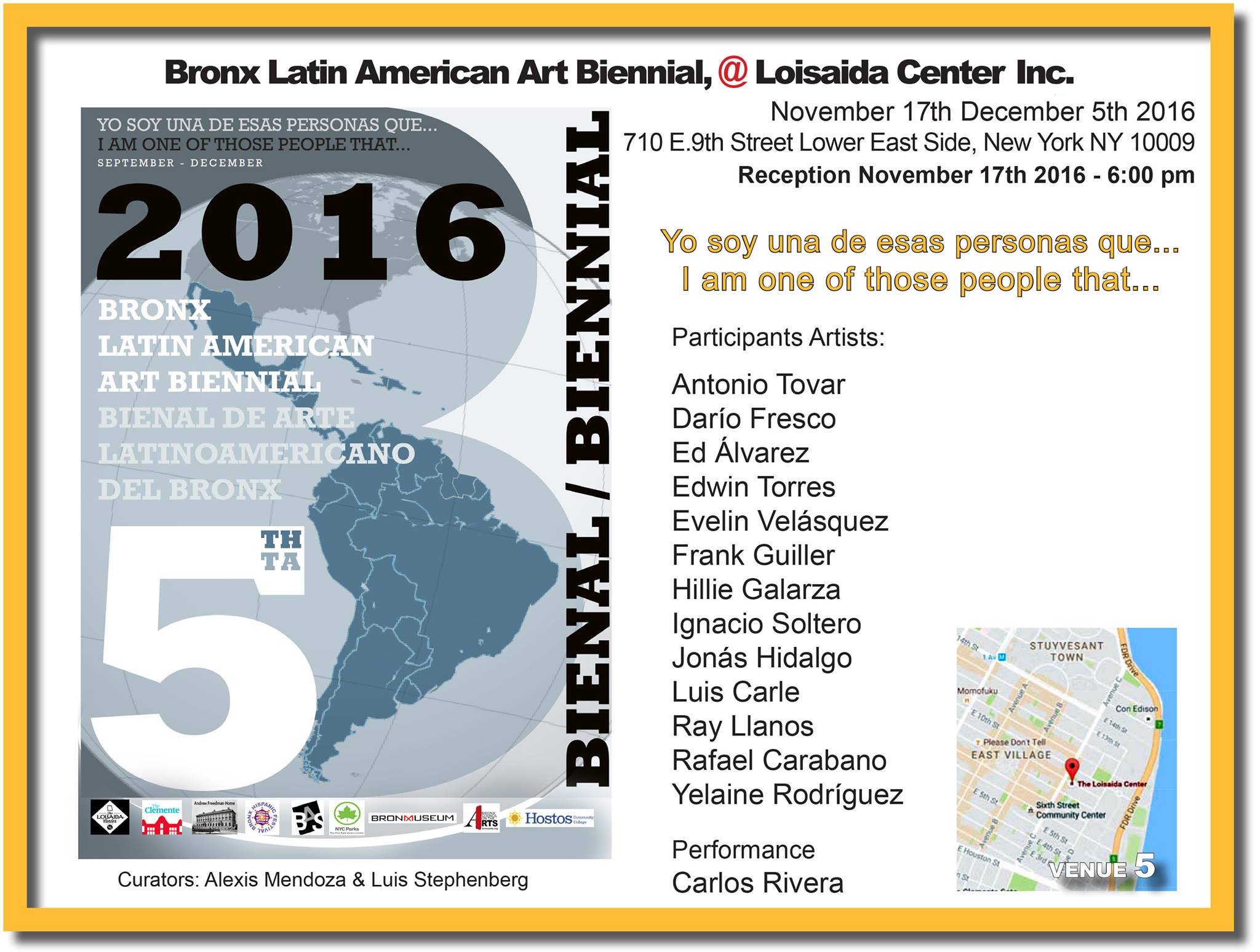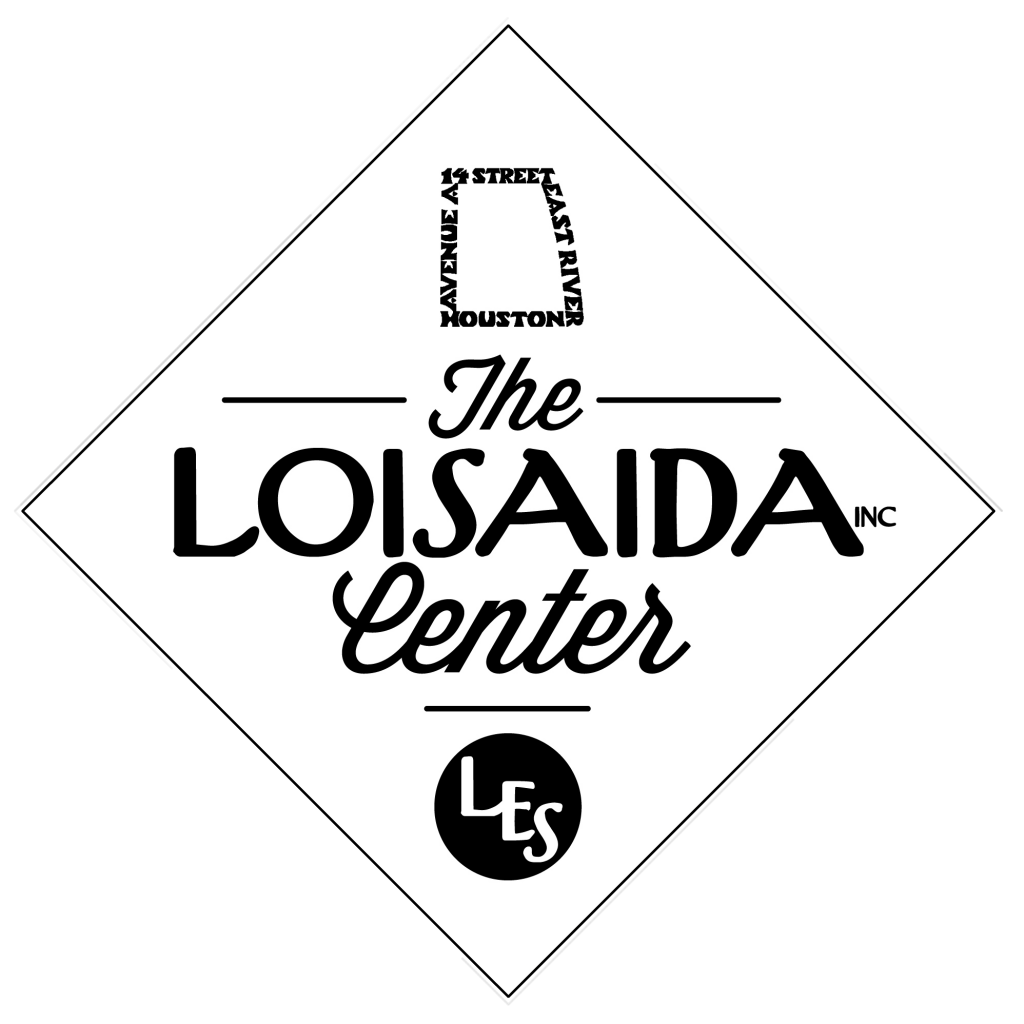
- This event has passed.
2016 Bronx Latin American Art Biennial – Opening

ARTISTS:
Antonio Tovar, Darío Fresco,
Ed Álvarez, Edwin Torres, Evelin Velásquez, Frank Guiller, Hillie Galarza, Ignacio Soltero, Jonás Hidalgo, Luis Carle, Ray Llanos, Rafael Carabano, Yelaine Rodríguez.
SPECIAL PERFORMANCE BY:
Carlos Rivera
Bronx Latin American Art Biennial’s Curators: Alexis Mendoza & Luis Stephenberg
OVERVIEW
I am one of those peoples that…
The 2016 edition of the Bronx Latin American Art Biennial under the title, “I am one of those people that…” will examine artworks referring to personal aspects of the creation process, what is in the mind of the artists sometimes is not what is reflecting on the work or the personal opinion; the personal philosophy. The curators and organizers of the 5th Bronx Latin American Art Biennial will focus the selection of the artworks more in the way artists think and what are the specifics behind the creating process. We encourage the artists to be very vocal about their work. Also, our intention is to have the opportunity to explore some of today’s local, national and international social issues such as: migration, women’s rights, political conflicts, different types of discrimination, and more important issues that reflect on the autonomy of the opinion. We are not seeking for every artwork to be a portrait or self-portraits, rather to be a self-representation of the artist’s way of thinking.
Sometimes art’s autonomy is proposed not as a genuine theoretical claim but as strategic one, where the suggestion is that only by claiming that art is indemnified by its very nature against moral culture can we prevent the forms of censorship that art is regularly subject to. But this strategic appeal to autonomy may purchase art’s freedom only at the cost of denying art’s power. I believe that a society that supports the arts supports the cultivation of minds that are able to pay attention, to think and notice what’s on artists’ minds become a habitual experience. Only then are there opportunities to reinforce the national culture. That will be the ultimate autonomy. Here we have drawn unlikely under current conditions, opinion, proposing instead a problematization of the same to the extent that we would no longer or with a referential field or with the discursive strategies capable of taking charge of the experience under the dissolutive operations that ideology, while constituting each of the moments of the object, has practiced on the disciplines and techniques that seek to address it.
